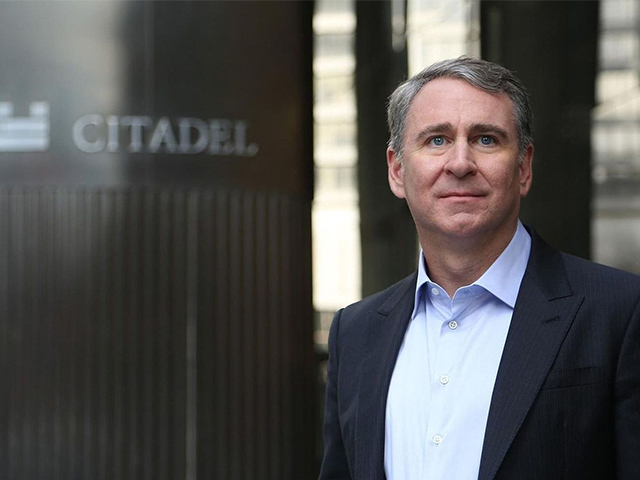If it takes a recession—or even a period of stagflation—to bring down inflation, so be it.
This was Jerome Powell’s message on the second of his two-day stint testifying on Capitol Hill. Lawmakers repeatedly pressed Powell on what he would do if the economy slowed dramatically while inflation was still high. If inflation is still too high, would the Fed continue to raise rates even if unemployment soared and the economy went into a contraction? Powell was firmly in the affirmative.
The exchange with Rep. Trey Hollingsworth (R-IN) was instructive. Hollingsworth cited the Atlanta Fed’s GDPNOW’s reading of zero growth for the second quarter, the recent climb in jobless claims, and last quarter’s economic contraction as evidence that the economy may already be in or nearing a recession. He said he was worried that if the Fed waited for evidence that inflation has significantly slowed, the Fed would be behind the curve again. He asked how the Fed would respond to a situation where inflation is still high “and unemployment is escalating quickly, and economic growth is negative.”
Powell did not flinch. “We can’t fail on this,” he said. “We really have to get inflation down to 2 percent.″

Federal Reserve Chairman Jerome Powell testifies before the House Committee on Financial Services on June 23, 2022, in Washington, DC. (Win McNamee/Getty Images)
For the most part, Republicans on the committee appeared to be inclined to support the hawkish stance of the Fed and Powell’s insistence that the Fed would be “uncompromising” when it came to fighting inflation. Many Democrats, however, argued that raising rates into a slowing economy would not do much to bring down rising food or gas prices but might throw many Americans out of work. Powell pointed out that while the Fed cannot increase the supply of oil or food, it can slow demand.
“Our tools are blunt, but they are the right tools to deal with broad aggregate demand,” he said.
This is how monetary policy works according to the standard view. The Fed fights inflation by raising rates, which makes mortgages, car loans, credit cards, and business loans more expensive. The price of credit rises, weighing on spending and hiring, weakening demand for goods and services, and softening the job market. Slower growth results, giving supply a chance to catch up with demand.
The argument made by Sen. Elizabeth Warren (D-MA) on Wednesday and House Democrats on Thursday is that the Fed shouldn’t try to fight inflation by reducing demand because in their view the problem is on the supply side. This is a version of what Biden has said as well. Powell’s response on Thursday was to say that lawmakers are free to try to juice supply by passing laws, but the central bank’s tool is interest rates and its legal duty is to use that tool to bring down inflation.
The Capitol Hill Democrat argument seems to be that the Fed should not be willing to risk a recession to bring inflation down. If inflation were not quite so high or so persistent, that might be persuasive. High and lasting inflation, however, would inflict deep economic scars, deeper than a temporary rise in unemployment or a broad but shallow economic slowdown.
Joe Biden’s Empty Quiver
At the same time Powell was getting grilled by Democrats on Capitol Hill over using demand management tools to address inflation that they insist boils down to corporate greed and supply-chain problems (a view now several months out-of-date), the Biden administration was demonstrating that it has no supply-side solution. Energy Secretary Jennifer Granholm gathered with leaders of the biggest oil refiners for an “emergency meeting” on high gas prices. The result was a plan to have another meeting.
This is the latest ploy by the Biden administration that only makes it clear that, as ISI Evercore put, Biden’s policy quiver is empty. The only real solution would be increased production of petroleum and increased investment in fossil fuel extraction. These things are anathema to the president’s party, however, so all they have left are fruitless emergency meetings, dead-on-arrival proposals like the gas tax holiday, and the president angrily telling gas station owners to charge less.
So Long Chicago, Hello Miami

Citadel hedge fund manager Ken Griffin who is moving his company’s headquarters from Chicago to Miami. (Chicago Tribune via Getty Images)
Ken Griffin told the employees of Citadel, the $51 billion hedge fund he founded, that the firm is joining the parade of folks moving down to Florida. Rising crime and ludicrous pandemic policies have driven many Americans to relocate down to Republican Gov. Ron DeSantis’ Sunshine State. Griffin has already moved there, and now he’s bringing his hedge fund and its employees with him.
The move also suggests that leftist outrage over Florida’s rebuke of Disney after the company came out against the state’s anti-grooming bill was not shared by the business community. Despite cries that this was an anti-business stance and concern-troll warnings that it would drive businesses out of Florida, Citadel was undeterred.
Related posts:
Views: 0
 RSS Feed
RSS Feed

















 June 24th, 2022
June 24th, 2022  Awake Goy
Awake Goy  Posted in
Posted in  Tags:
Tags: 
















